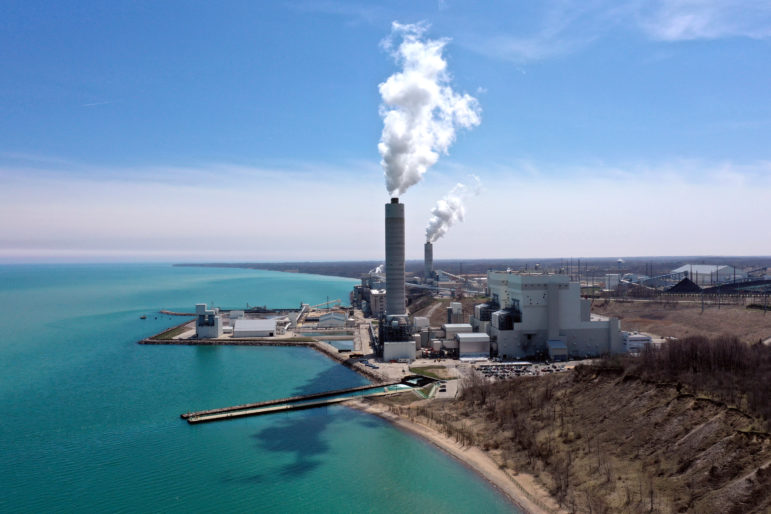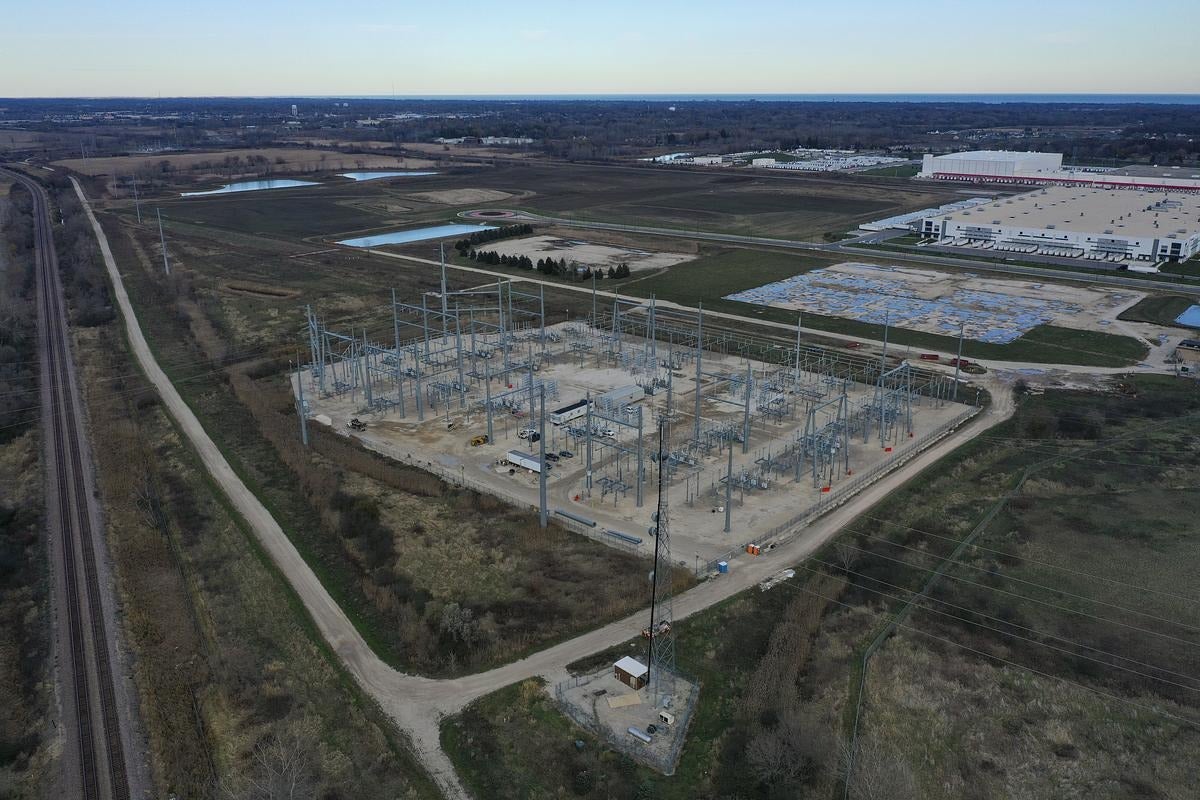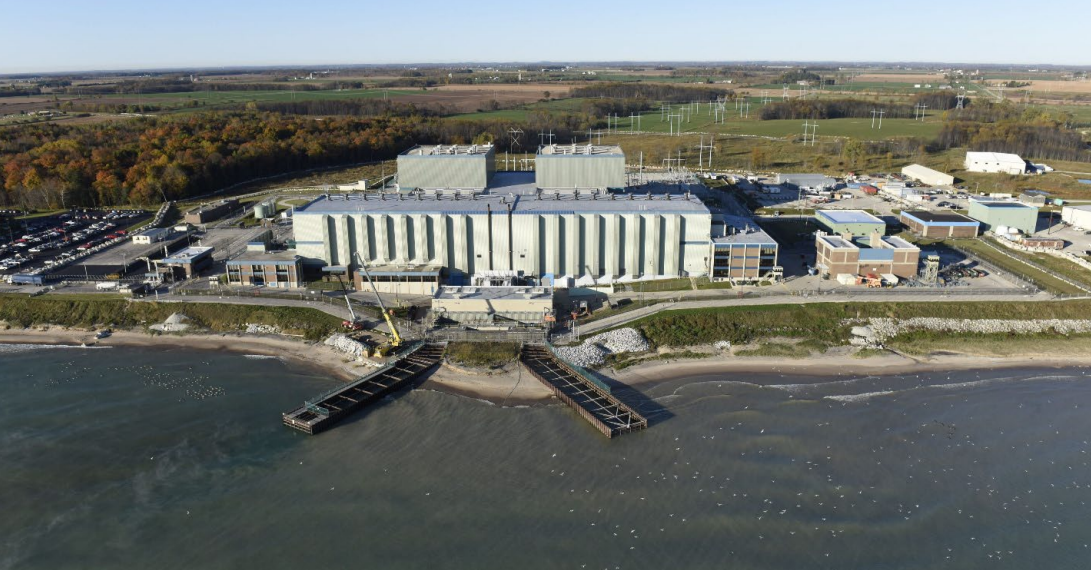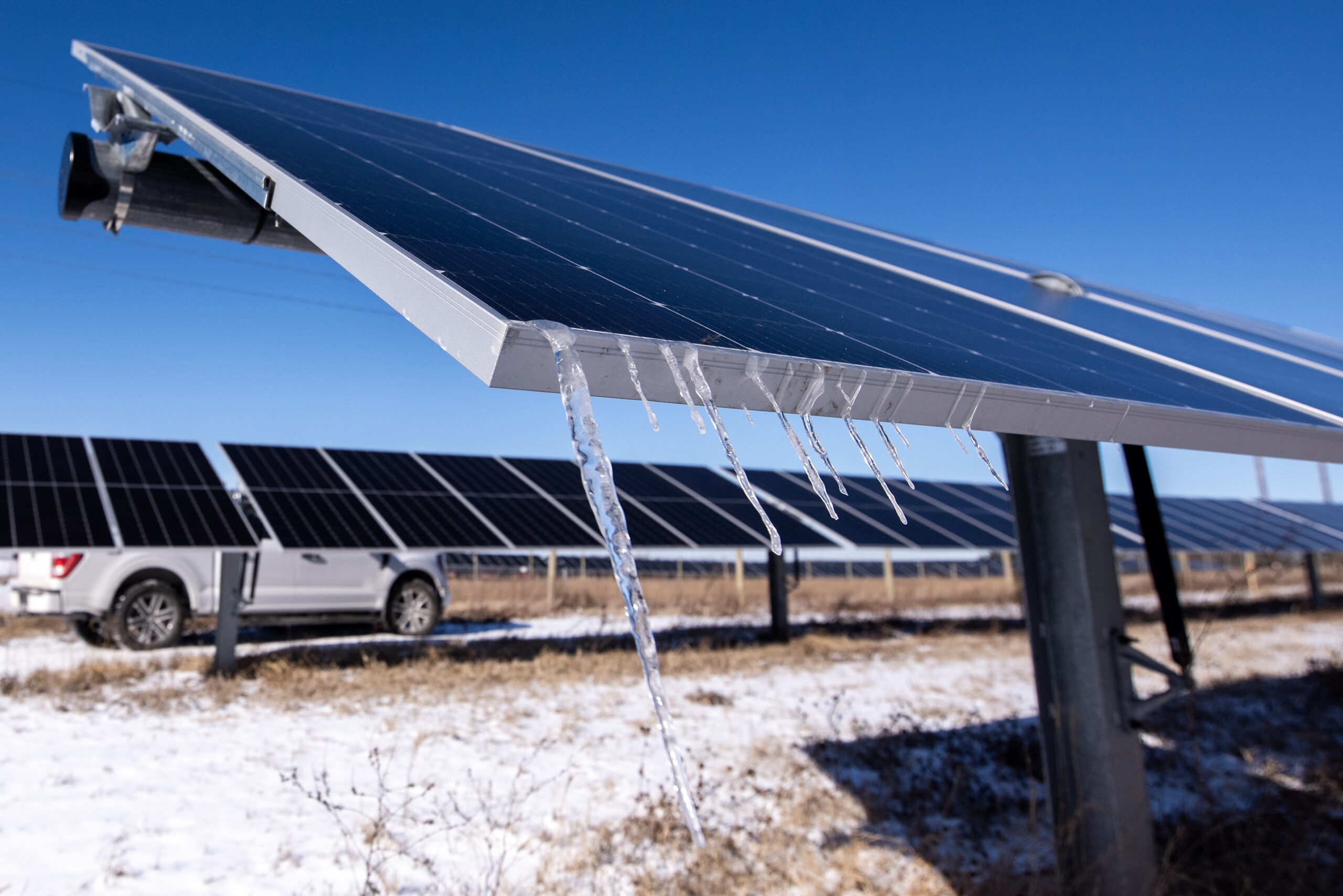One of the nation’s largest electric utilities serving Wisconsin is pledging to go carbon-neutral by 2050, joining a growing list of companies that are looking to step up their carbon reduction goals.
WEC Energy Group, which owns We Energies and Wisconsin Public Service, has set a new goal to reduce carbon emissions 70 percent in the next decade after exceeding its previous goal to cut emissions by 40 percent. The company plans to spend $900 million on renewable energy generation in Wisconsin over the next four years.
“Our plan assumes that we will replace some older fossil fuel generation, and we’ll replace that with carbon-free or lower-emitting or zero-emitting generation,” said Brendan Conway, company spokesperson.
News with a little more humanity
WPR’s “Wisconsin Today” newsletter keeps you connected to the state you love without feeling overwhelmed. No paywall. No agenda. No corporate filter.
WEC Energy Group has received approval from regulators to invest 300 megawatts of utility-scale solar projects in the state. Wisconsin Public Service will own 100 megawatts on the first phase of the Badger Hollow Solar Farm and 100 megawatts of the Two Creeks Solar Project. We Energies will own 100 megawatts of the second portion of Badger Hollow. The company also plans to acquire a majority stake in five wind farms, providing around 1,000 megawatts of power.
Conway said the company’s plan also assumes emissions from newer power plants will be offset through carbon capture or other means.
“Our plans are really similar to what all of our other peers in the utility industry have done who have also announced similar net-zero goals,” he said.
Gov. Tony Evers has set a goal for utilities to produce carbon-free electricity by 2050. Minnesota-based Xcel Energy was the first major utility serving Wisconsin to announce its goal to go carbon-neutral in 2018, followed by Madison Gas and Electric last year. Madison-based Alliant Energy recently announced it plans to reach net-zero carbon emissions by 2050, pledging to eliminate coal from its generation fleet in the next two decades.
Conway said the company isn’t announcing plans to replace specific plants as this point. WEC Energy Group owns several coal-fired power plants in Wisconsin. They include the 1,100 megawatt Oak Creek plant and 1,200 megawatt Elm Road Generating Station. Wisconsin Public Service says it owns close to 1,100 megawatts of coal-fired capacity at the Weston plant in Rothschild and Columbia Energy Center in Portage.
WPS owns a majority share of the Weston plant along with Dairyland Power Cooperative. The company also co-owns the Columbia Energy Center with Alliant Energy and Madison Gas & Electric.
Conway noted the company didn’t announce changes to its generation fleet when it set its original goal of reducing carbon emissions 40 percent by 2030. But since then, WEC Energy Group has retired several coal-fired plants, including the We Energies power plant in Pleasant Prairie and Presque Isle plant in Michigan.
The company has retired 40 percent of its coal generation since 2014.
Environmental groups have supported utilities transition to cleaner, more affordable energy. But they have often argued that the pace of the transition is not fast enough to stave off the worst effects of climate change, including Elizabeth Katt Reinders, deputy regional director of Sierra Club’s Beyond Coal Campaign.
She added that utilities need to be looking beyond carbon emissions.
“We need to recognize that when you look at the upstream emissions from extracting gas, transporting gas, those upstream emissions are going to offset any greenhouse gas emission reductions that a utility is getting from burning gas instead of coal for electricity,” said Katt Reinders.
WEC Energy Group replaced its Presque Isle coal plant with two natural gas facilities last year. Utilities argue that natural gas facilities produce half as many emissions as coal-fired plants.
A United Nations panel on climate change said emissions would need to be cut roughly in half over the next decade to avoid the worst effects of climate warming.
The Sierra Club also argued We Energies’ Oak Creek plant cost customers more than $75 million more per year than if We Energies purchased power on the open market between 2014 and 2018.
“That plant is losing money. It’s polluting the neighborhood. It’s impacting public health. It’s impacting Lake Michigan. It’s a major contributor to climate change,” said Katt Reinders. “There is absolutely zero reason for them to wait a day longer to announce retirement at that coal plant.”
Consumer advocates like the Citizens Utility Board (CUB) are concerned about the financial pressure that may be placed on customers as utilities transition away from fossil fuels. The Public Service Commission allowed We Energies to refinance about $100 million of its investment in the Pleasant Prairie plant last year. The utility had originally sought to recover around $650 million it had invested in the now-shuttered plant.
CUB has said they encourage utilities to explore innovative financing to avoid saddling customers with extra costs.
We Energies serves more than 1 million electric customers while Wisconsin Public Service provides electricity to just under half a million customers.
Wisconsin Public Radio, © Copyright 2025, Board of Regents of the University of Wisconsin System and Wisconsin Educational Communications Board.







